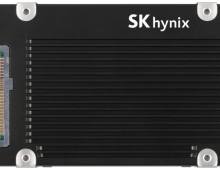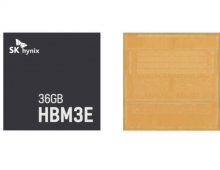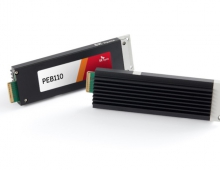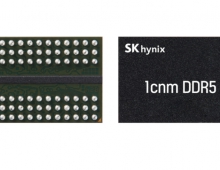
Elpida Ramps Up Production of 30nm DRAM
Elpida Memory, Inc. today announced that it will commence full-scale mass production of 30nm process DRAM in May 2011.
Elpida completed development of 30nm process DRAM in September 2010 and started shipping 2-gigabit samples to its major customers including the processor makers in December of the same year. Mass production was launched in January 2011.
Elpida will mass produce the 30nm process DRAM at its Hiroshima Plant as well as at Taiwan-based Rexchip Electronics Corporation.
Mass production of 30nm 2-gigabit DDR3 SDRAM for PC applications will start in May 2011, followed by 4-gigabit DDR2 Mobile RAM and 4-gigabit DDR3 SDRAM, the company said. Elpida's Hiroshima Plant will devote 20% of its production capacity to manufacturing the new 30nm process DRAM in the second quarter of CY 2011, which will be ramped up to 30% in the third quarter as the company implements its planned switchover of almost all production lines to cost-effective 30nm and 40nm processes.
Rexchip Electronics will start manufacturing 30nm process DRAM in the third quarter of CY 2011, with its 30nm lines reaching a production capacity of 50% in that quarter, and possibly reach 100% in the fourth quarter.
Elpida's claims tht its 30nm process DRAM yields 45% more chips per wafer than 40nm products and consumes at least 20% less power. With one of the smallest chip sizes and great power performance, 30nm process DRAM helps slash the size and power consumption of a wide range of digital electronics devices, from lightweight battery-powered mobile devices such as smartphones and tablets, to computers and servers demanding lower power consumption.
Elpida will mass produce the 30nm process DRAM at its Hiroshima Plant as well as at Taiwan-based Rexchip Electronics Corporation.
Mass production of 30nm 2-gigabit DDR3 SDRAM for PC applications will start in May 2011, followed by 4-gigabit DDR2 Mobile RAM and 4-gigabit DDR3 SDRAM, the company said. Elpida's Hiroshima Plant will devote 20% of its production capacity to manufacturing the new 30nm process DRAM in the second quarter of CY 2011, which will be ramped up to 30% in the third quarter as the company implements its planned switchover of almost all production lines to cost-effective 30nm and 40nm processes.
Rexchip Electronics will start manufacturing 30nm process DRAM in the third quarter of CY 2011, with its 30nm lines reaching a production capacity of 50% in that quarter, and possibly reach 100% in the fourth quarter.
Elpida's claims tht its 30nm process DRAM yields 45% more chips per wafer than 40nm products and consumes at least 20% less power. With one of the smallest chip sizes and great power performance, 30nm process DRAM helps slash the size and power consumption of a wide range of digital electronics devices, from lightweight battery-powered mobile devices such as smartphones and tablets, to computers and servers demanding lower power consumption.





















